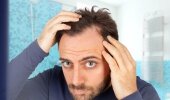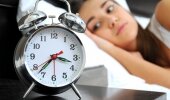Words: Leap Communications
More than a third of South African women over 30 polled in a new survey say they are showing signs of early hair loss which has impacted negatively on their self confidence, their appeal to their partners and has led to anxiety and depression.
Photo credit: Shutterstock
The survey found that 37% of 505 women canvassed in Johannesburg, Durban and Cape Town were either showing signs of hair loss (28%), had a serious hair loss problem (8%) or were going bald (1%). Thirty eight percent of those losing hair said they had experienced symptoms of depression or anxiety due to hair loss. This figure rose to almost half of the respondents aged between 46 and 55, while demographically, the figure was slightly higher among white women at 42%.
The survey was conducted on women over 30 by independent company Plus 94 Research, on behalf of Plantur39, a phyto-caffeine shampoo shown to protect against premature hair loss linked to menopause. Among the 505 women polled, the research also found:
o The majority (69%) believe healthy hair plays a huge part in their self image, while 55% said healthy hair builds self confidence and attracts attention from the opposite sex.
o A third believes hair loss will affect their appeal to their partner.
o Almost 75% are spending up to R500 a month on hair care, 13% up to R1 000 and 7% over R1 000.
o Half say they would be willing to sacrifice a new wardrobe while 39% would sacrifice holidays to solve a hair loss problem.
Commenting on the results, clinical psychologist, Dr Colinda Linde, chairperson of the board of the SA Depression and Anxiety Group, said the importance women placed on their hair contributed to feelings of anxiety and depression when faced with hair loss. “Hair is an accessory we carry with us daily – we feel good when our hair looks good and even speak about ‘bad hair days’ when we have difficult days. Hair has also been associated with youth and vitality, and thinning hair is an often an unwelcome reminder of our own mortality. When the hair loss process is accelerated, the stressors associated are often amplified as well.”
German scientist, Dr Adolf Klenk, head of research at cosmeceutical manufacturer, Dr Kurt Wolff, discovered the positive effects of caffeine on hair roots and explained that hair loss in women is often related to menopause. “Before menopause, hair roots are protected by high levels of the female hormone estrogen. After menopause, estrogen levels decline and the impact of the male hormone testosterone increases. The result is thinning hair which falls out prematurely. This is typical in some women over 40 and a cause for concern for them.”
Caffeine is a highly effective substance. During daily washing, the phyto-caffeine penetrates the hair follicle very quickly to reach the hair root where its protective effect unfolds. This has been proven by scientific studies.
References:
Effect of caffeine and testosterone on the proliferation of human hair follicles in vitro; Clinic for Dermatology and Allergology, Friedrich Schiller University, Jena, Germany, published in International Journal of Dermatology 2007, 46, 27–35.
² Investigation of the penetration and storage of a shampoo formulation containing caffeine into the hair follicles by in vivo laser scanning microscopy; Department of Dermatology and Allergology and Center of Experimental and Applied Cutaneous Physiology, Charité University, Berlin, Germany, and the University of Athens, Greece, Published on the Internet 26 February 2007.
³ Post-marketing surveillance study for Plantur 39 Caffeine Tonic; Clinic for Dermatology and Allergology, Friedrich Schiller University, Jena, Germany. See here: http://www.plantur39.de/en/research/surveillance-studies/surveillance-st...












